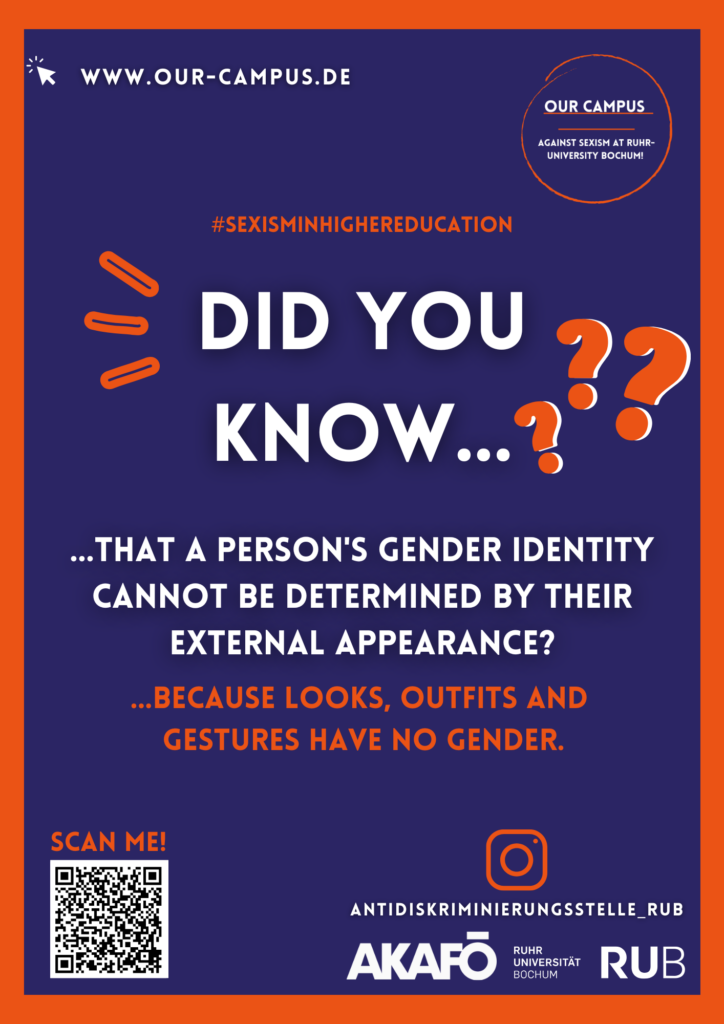Maybe you’ve experienced this before: you see a person on campus or in a course and you automatically assign a gender and corresponding personal pronouns to them. Perhaps because the person is wearing a dress or has long or short hair and you automatically perceive them as male/masculine or female/feminine. Such classifications happen all the time – mainly due to our socialisation in a heteronormative society.

But did you know that you can’t tell a person’s gender identity by looking at them? Because you cannot tell a person’s gender from their clothes, gestures or external features such as their hairstyle! The philosopher Judith Butler describes in her book ‘The Discomfort of Gender’ that a person’s gender is based on two dimensions: The ‘sex’ (biological sex à e.g.: a person is born with a uterus and is assigned to the female sex) and the ‘gender’ (social sex or the sex that society assigns to whom à e.g. a person has long hair and wears make-up and is viewed as female by other people). According to Butler, this is intended to support the argument ‘(…) that gender identity is a cultural construction (…)’[1].
Apart from the fact that gender and sex are a spectrum that is not limited to binarity (i.e. male – female), gender expression can also (intentionally) not correspond to gender identity. In order not to misgender people on the basis of their appearance, i.e. to assign them to the wrong gender, we can also speak of ‘male-read people’ or ‘female-read people’ instead of ‘man’ or ‘woman’. This can be a way of expressing that you do not simply want to assign a gender to people.
Are you unsure how to use which pronouns or what the difference is between non-binary and genderqueerness, for example? There are various glossaries where you can find information, take a look here, for example:
With this awareness campaign, workshops and the structural awareness process at student-organised events, UNSER CAMPUS aims to draw attention to and raise awareness of issues such as discrimination based on gender identity. You can find lots more information about anti-discrimination in the university context, our project activities and awareness at events on our website.
Sources
[1] Judith Butler: Das Unbehagen der Geschlechter, Suhrkamp 2023, p.22.


